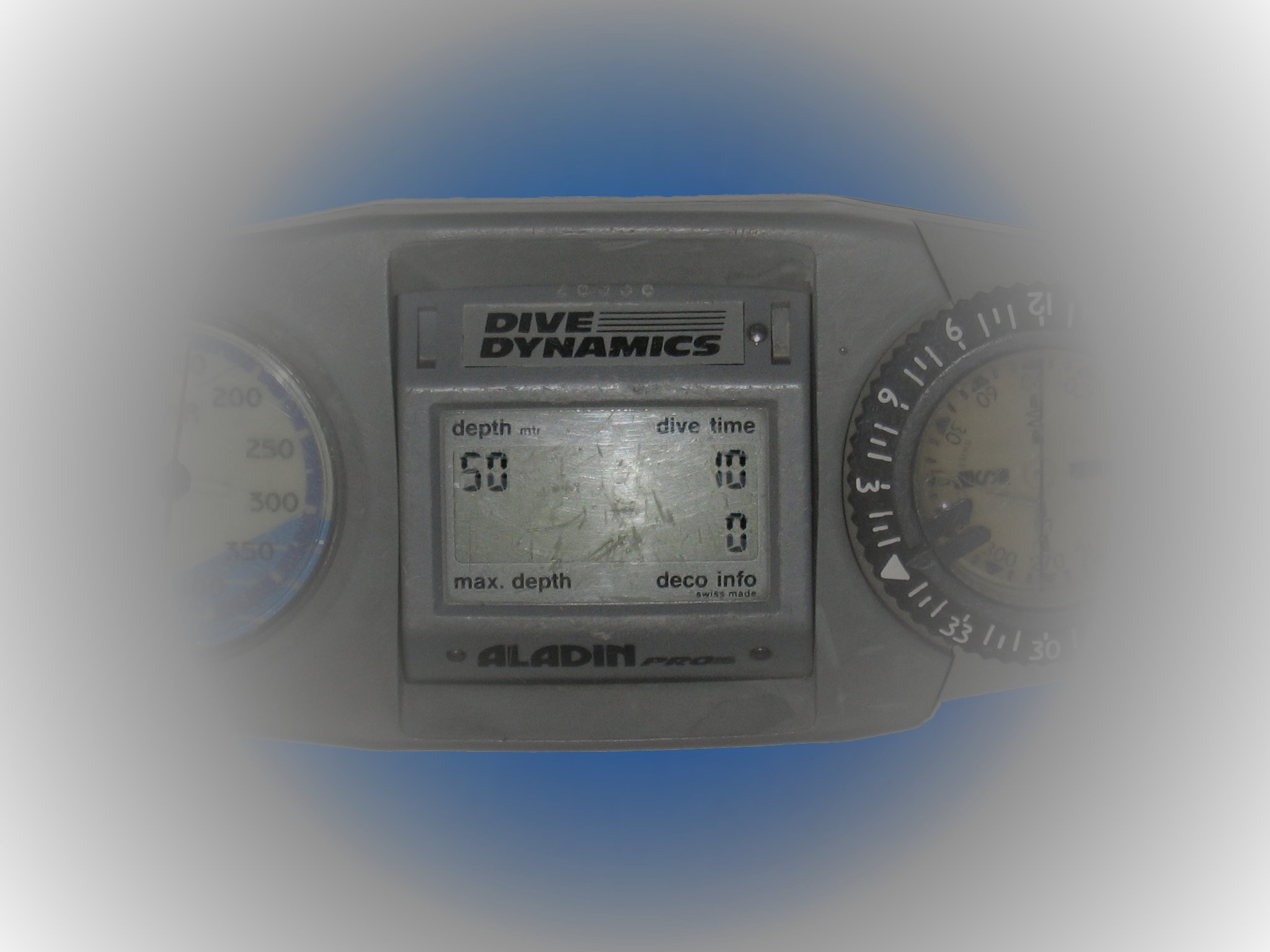Which Organ Is Very Sensitive To The Increases In Blood Nitrogen Gas During Deep Water Dives?

I watched a programme the other day almost a deep sea mystery. A strangely loftier number of experienced deep body of water divers had been lost on diving trips in a particular bay, and no one seemed to know why. The presenter, being a decent diver himself, went for a dive in the bay and noticed that he could make out the sunlight shining through the water at the other terminate of an underwater tunnel. His conclusion was that the now deceased divers saw this low-cal and idea they could swim through the tunnel to the other side. What wasn't obvious to the divers was that this calorie-free was deceptively far away and they would have to swim very fast for a long time to go far to the other end of the tunnel before running out of oxygen. But what could cause these supposedly experienced divers to make such a rash, fatal decision?

Above sea level, nitrogen is a pretty tiresome gas – information technology makes up most 80% of the air around us and doesn't normally do u.s. any damage. However, a problem arises when nosotros breathe it in under high pressure – such as when diving. Several gases, including nitrogen, carbon dioxide, and oxygen are normally dissolved in our bloodstream. When yous dive deep underwater, the increment in pressure exerted on your body by the surrounding h2o causes more of these gases to dissolve into your blood through your lungs when you exhale from the gas tank (considering going deep-sea diving without a gas tank would be an even less recommendable thing to do). In fact, for every 10m a diver descends, their blood holds an extra 1.5 litres of dissolved nitrogen.
All that extra nitrogen rushing round in the bloodstream has weird, wonderful, and incompletely understood effects on the brain, collectively known as nitrogen narcosis.
Nitrogen narcosis is experienced by all divers – to varying degrees – and feels essentially similar being drunk. Because of this similarity, nitrogen narcosis is oftentimes referred to as the 'Martini effect'. Divers liken every 10m beneath sea level as the equivalent of having one martini – significant they feel increasingly intoxicated the deeper they get. Fifty-fifty at comparatively shallow depths (10-30m below the surface), a diver will become less co-ordinated and a chip lightheaded – 20m lower they'll start making mistakes and bad decisions and may beginning laughing for no reason. At fifty-70 metres, they may kickoff experiencing hallucinations, sleepiness, terror, poor concentration and confusion, and at 90m they gamble losing consciousness or even dying.
So, the worse symptoms of nitrogen narcosis aren't exactly similar getting drunkard, because even a huge corporeality of alcohol doesn't give people hallucinations (though some alcoholics feel hallucinations when withdrawing from booze). Actually, the closest similarity to nitrogen narcosis you can find on dry land is from animate laughing gas, or nitrous oxide.

Nitrous oxide has been used by doctors to relax patients since 1794 and information technology is withal used today as a form of pain relief for women during childbirth. It has been in the printing a lot recently, dubbed 'hippie crack', as it's frequently used recreationally (though usually not legally) for its balmy hallucinogenic and euphoric 'experience good' effects, which have oft been likened to nitrogen narcosis. So how does nitrous oxide impact the encephalon?
Although nitrous oxide is hugely understudied, there are several theories about how it can impact the brain. Because gases like nitrous oxide and nitrogen are actually fat-soluble, they may interfere with jail cell membranes (which are made from fatty molecules) disrupting their normal part. In the case of brain cells, this may alter the way they communicate with one another. In addition, the dissolved gas molecules may directly demark to the receptors on the surface of brain and nerve cells. Nitrous oxide is used every bit a balmy anaesthetic because it has been shown to block NMDA receptors – which normally 'excite' the brain – and because it activates potassium channels, which further suppress encephalon jail cell excitation. All this means is that brain activity is generally depressed then users are more decumbent to making bad decisions or losing concentration.
As I mentioned earlier, nitrous oxide is too good for pain-relief, as it'south believed to activate opioid centres in the brain. When activated, the opioid system – the aforementioned one stimulated by drugs like heroin and morphine – then disinhibits certain adrenergic cells in the spinal cord, which dampen downwardly any feelings of pain.
While at that place take been reports that nitrogen narcosis also decreases the perception of pain, it'southward plain difficult, and, well, non very practical to test the potential of high pressure deep bounding main diving on hurting relief. Instead, what should be studied more than are the effects of nitrous oxide on the nervous system. We've used the stuff for more 200 years and still the biology backside its uses and its dangers is still non fully understood. What's more, the fact that people apply nitrous oxide recreationally (and probably will continue to do and then in spite of its not-legal condition in many countries) means we actually ought to know what its short and long term furnishings on the brain are. Different the mystery of the missing deep sea divers, the total extent of the means in which nitrous oxide works remains unsolved.
Post past Natasha Bray
Which Organ Is Very Sensitive To The Increases In Blood Nitrogen Gas During Deep Water Dives?,
Source: https://thebrainbank.scienceblog.com/2014/03/13/diving-narcosis-and-laughing-gas/
Posted by: reesegroody.blogspot.com


0 Response to "Which Organ Is Very Sensitive To The Increases In Blood Nitrogen Gas During Deep Water Dives?"
Post a Comment